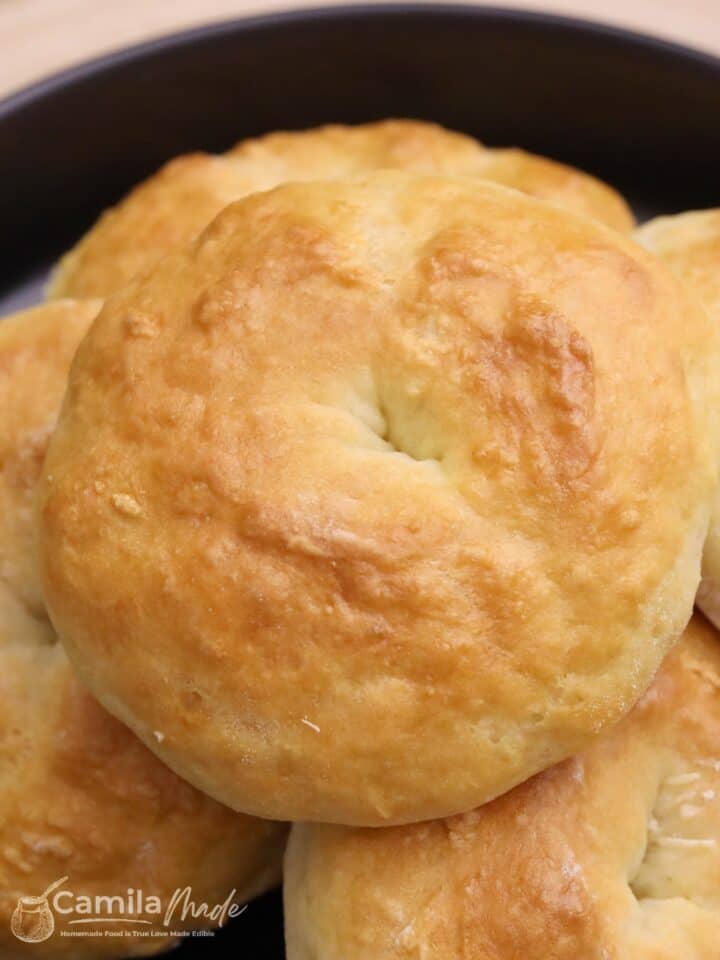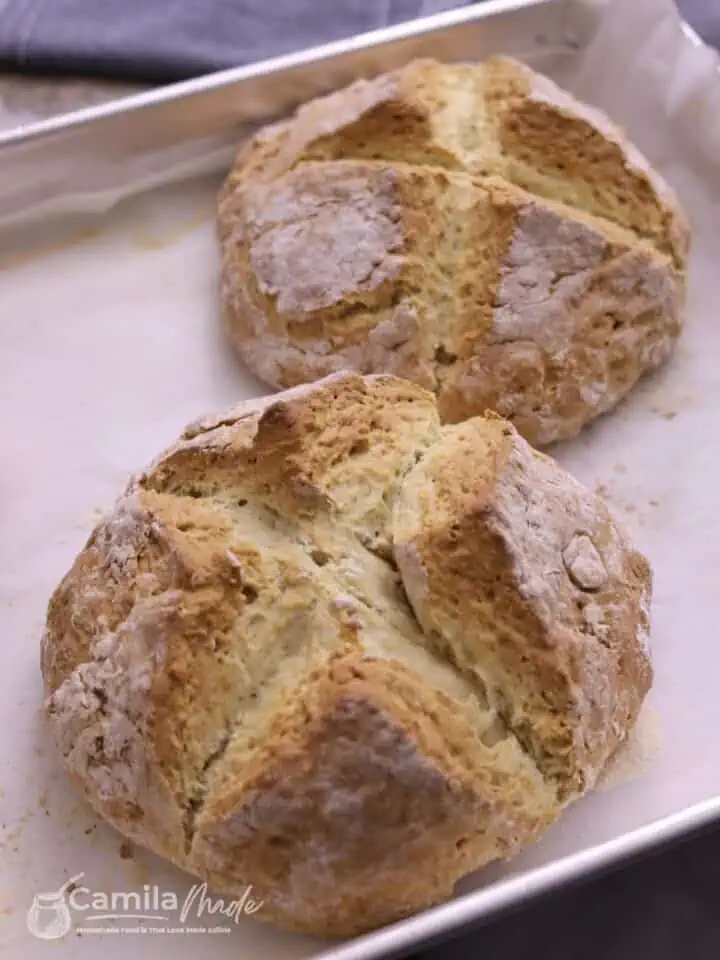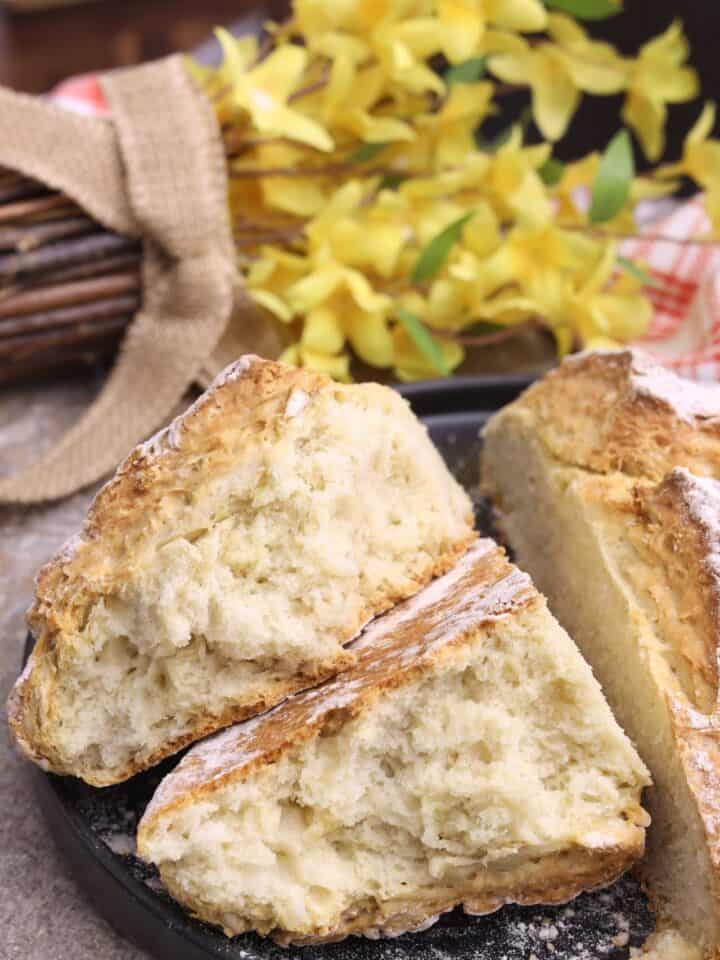Learn how to make toasted bread perfectly in the oven! This method provides even toasting and lets you choose your desired level of crispness.
Whether you prefer a light golden toast or a crunchier result, our step-by-step instructions will help you achieve deliciously toasted bread every time.
Turn ordinary bread slices into delectable toasts perfect for breakfast, brunch, or whenever you want a satisfying crunch.🍞
How to Make Toasted Bread
Note: The full instructions are provided in the recipe card below.
Preheat it to around 400°F (200°C). Make sure to allow the oven to preheat before placing the bread inside. Arrange the white sliced bread in a single layer on the baking sheet. You can lightly butter the bread if desired, but it's unnecessary. Place the baking sheet with the bread into the preheated oven.
Keep a close eye on the bread to prevent burning. The toasting time will vary depending on the thickness of the bread and your desired level of toastiness. As a general guideline, begin by toasting the bread for approximately 5 minutes on one side for a light toast. Adjust the time as needed to achieve your desired level of crispness. Once the first side is toasted to your liking, flip the bread using tongs or a spatula.
Toast the other side for the same amount of time as the first side. It's important to watch the bread closely during the last moments to prevent burning. When the bread reaches your desired level of toastiness, safely remove it from the oven using oven mitts or appropriate tools. Allow the toasted bread to cool briefly, then serve it immediately. You can enjoy it as is or add your favorite toppings or spreads, such as butter, jam, or avocado.
Related Recipes:
- Torrejas
- Passover Bread
- Sheet Pan French Toast
- Bread for Tortas
- Fig and Ricotta Toast
- Cheese Soda Bread
- French toast
📖 Recipe
Toasted Bread
Ingredients
- 9 slices whole wheat, white bread or bread of choice
Instructions
- Preheat it to around 400°F (200°C). Make sure to allow the oven to fully preheat before placing the bread inside. Arrange the white sliced bread in a single layer on the baking sheet. You can lightly butter the bread if desired, but it's not necessary.
- Place the baking sheet with the bread into the preheated oven. Keep a close eye on the bread to prevent burning. The toasting time will vary depending on the thickness of the bread and your desired level of toastiness.
- As a general guideline, begin by toasting the bread for approximately 5 minutes on one side for a light toast. Adjust the time as needed to achieve your desired level of crispness. Once the first side is toasted to your liking, carefully flip the bread using tongs or a spatula.
- Toast the other side for the same amount of time as the first side. It's important to watch the bread closely during the last moments to prevent burning. When the bread reaches your desired level of toastiness, safely remove it from the oven using oven mitts or appropriate tools.
- Allow the toasted bread to cool for a moment, then serve it immediately. You can enjoy it as is, or you can add your favorite toppings or spreads, such as butter, jam, or avocado.
Notes
- Storage: Allow the toasted bread to cool completely before storing. Place it in an airtight container or sealable plastic bag to maintain its crispness. Alternatively, you can wrap the bread tightly in aluminum foil. Properly stored, toasted bread can be kept at room temperature for up to 24 hours.
- Reheating in the Oven: Preheat your oven to around 350°F (175°C). Remove the bread from its storage container or foil and place it on the oven rack or a baking sheet. Heat the bread for 5-10 minutes or until it reaches your desired level of warmth and crispness. Keep a close eye on the bread to prevent over-toasting.
- Reheating in a Toaster: If you prefer a quick and convenient option, you can use a toaster to reheat the toasted bread. Simply place the bread slices in the toaster and toast them in a medium setting until they are warmed through and regain their desired crispness.
- Reheating in a Skillet: Another method is to reheat the bread in a skillet on the stovetop. Heat a non-stick skillet over medium heat and place the bread slices in the pan. Cook for a couple of minutes on each side until the bread is heated and becomes crispy again.
All nutritional information is based on third-party calculations and is only an estimate. Each recipe and nutritional value will vary depending on the brands you use, measuring methods, and portion sizes per household.
